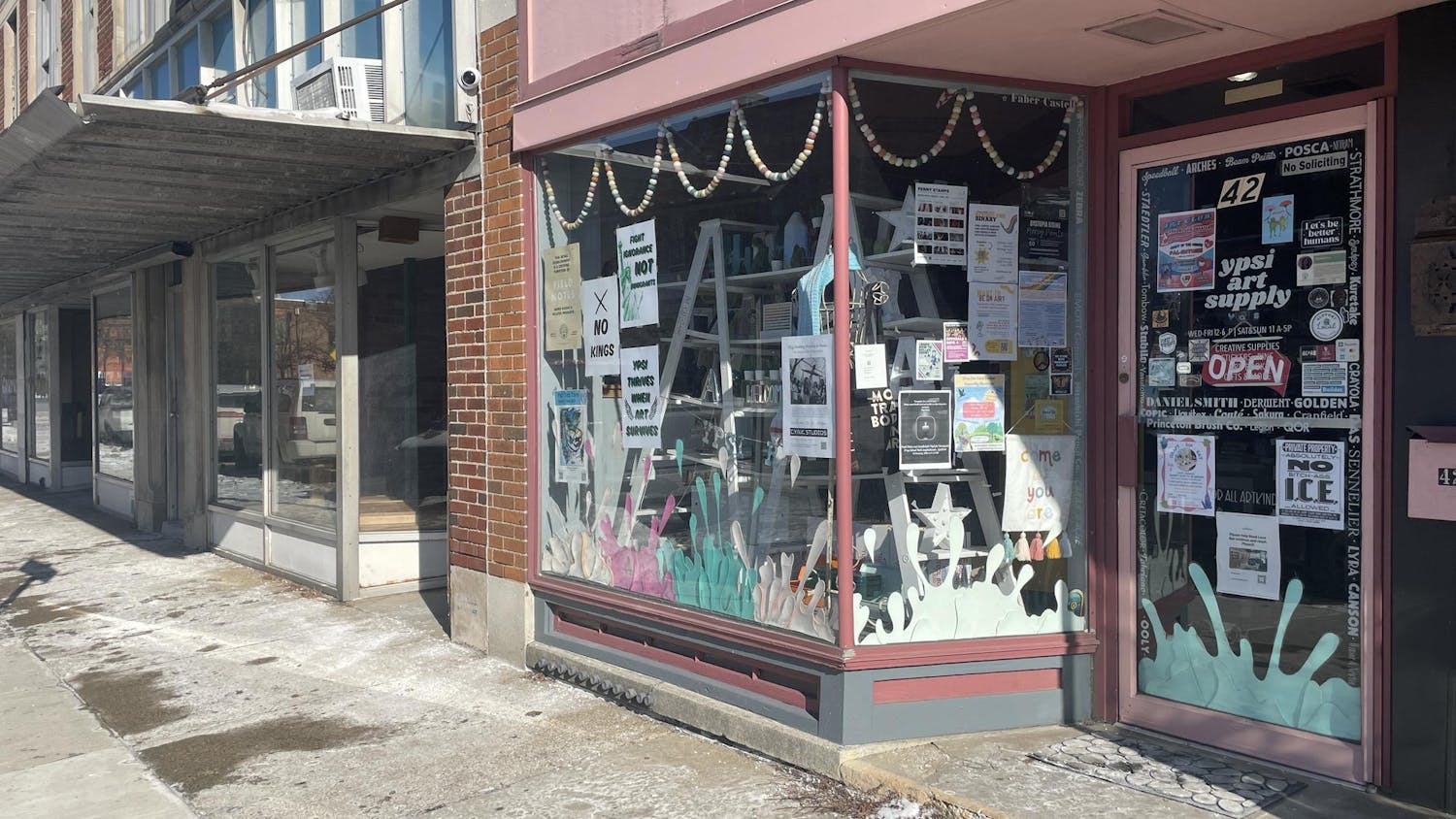A discussion panel entitled American Indians: Stories of Their Experiences in the U. S. Military took place this Tuesday as part of Native American Heritage Month at Eastern Michigan University. The six panelists, members of the Native American Veterans Association of Southeast Michigan, spoke about their time in the military.
Jim Lowe joined the military in 1967. To make sure he would be placed where he wanted, rather than randomly assigned, Lowe willingly volunteered for the Army and arrived in Vietnam in March of 1968 during the Tet Offensive phase of the war.
The conditions Lowe and others fought in included unbearable amounts of mosquitoes and intense heat. Lowe described how soldiers even had to deal with animals on occasion. While working a long shift, Lowe talked about an instance of having to deal with rats.
In another incident, Lowe and other troops found the trail they were following blocked by snakes. As the men backtracked, the snakes followed them up the trail. Fortunately, the sound of a local riding a motor bike scared the snakes away.
The soldiers also dealt with volatile weather while in combat. When the troops faced typhoon rains, Lowe said he expected to die. Wandering around in the wilderness, the men faced the constant danger of ambush.
“You could be shot walking around at night in Vietnam,” he said.
Greg Jolin, another panelist, served in the U.S. Navy off the coast of Iran during the Iranian hostage crisis as well as in Guam, the Philippines and Pearl Harbor. “We carried enough ammunition to blow-up a city the size of Detroit,” Jolin said. The ship Jolin served on took 24 hours to refuel and carried enough supplies to last a task force for six months. One night, the sailors were forced to act when a fire broke out around 2:30 a.m. on the ship, which was carrying fuel.
“We worked to put out that fire because when you’re 1,000 miles from land, that’s a long way to swim,” he said.
Jolin recalled a time when he and the crew were alerted when water started to leak through a one foot crack that appeared on the side of the ship. By the time the crew managed to temporarily plug the leak, the ship progressed into calmer seas. One crewman was lowered over the side of the ship to weld the crack closed.
Jolin said his time in the Navy was invaluable.
“I had a good time when I was in the navy,” he said. “I’d seen things in my life that I would have never dreamed of seeing.”
Panelist Chris Franklin served in the U.S. Coast Guard from 1964-68. Franklin served with 18 other men doing stateside search and rescue. After introducing himself, Franklin read a letter he had received from his warrant officer. In the letter, Franklin’s officer wrote about life in retirement from the Coast Guard.
“When a military veteran leaves the job and retires to a better life, then you’re jealous,” Franklin said. “Some are pleased, and others who may have already retired wonder if the new retiree knows what he is leaving behind, because we already know.”
Tony Perry, a former EMU student, worked in Special Operations in the Army. Perry said his time in the Army helped him develop an appreciation for veterans who risked their lives for their country. Perry said Americans should appreciate their veterans more as well.
“The liberal media has the tendency to want to downplay and ostracize veterans and these people who are volunteering to go out and risk their life, risk their neck, risk their arm and their extremities to keep people free,” Perry said. “You know there needs to be a lot more respect, more reverence towards them and appreciate who they are and what they are.”








